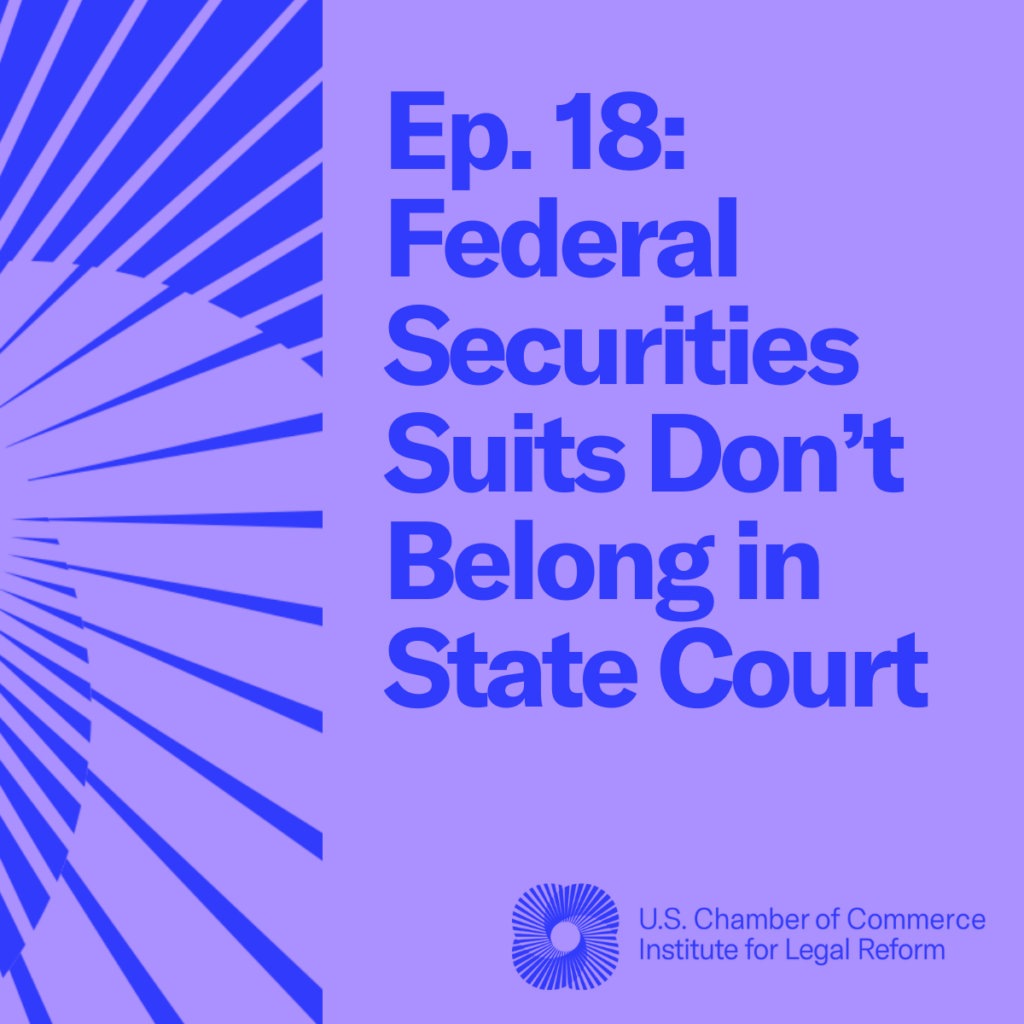In late June, a federal judge in Illinois delivered an extraordinary opinion. U.S. District Judge Thomas Durkin threw out a merger and acquisition (M&A) objection lawsuit settlement and ordered the plaintiffs’ lawyers to return hundreds of thousands of dollars in fees. He also said that the case should have been dismissed before it ever got off the ground, and that it was time to end the “racket” of “worthless” M&A lawsuits.
As noted securities litigation observer Kevin LaCroix has commented, this could be the first step towards “driving a stake in the heart” of the M&A lawsuit machine.
That machine has run rampant in recent years. ILR’s white paper, “A Rising Threat: The New Class Action Racket That Harms Investors and the Economy,” documented the rapid rise of securities class action lawsuits beginning in 2017. Filings that year doubled the average annual filing rate from the previous 20 years. That trend continued in 2018 and, as recent reporting indicates, it is likely to persist this year if reforms are not made.
M&A objection lawsuits are a major driver of this trend. These are cases where plaintiffs’ lawyers work with lead plaintiffs to file suit alleging that company disclosures relating to a proposed M&A transaction were insufficient and/or deceptive, then dismiss their lawsuit in exchange for additional disclosures and a so-called “mootness fee.”
Since these objection lawsuits delay M&A transactions, companies often feel pressured to bend to the plaintiffs lawyers’ demands in order to quickly end the litigation once it is filed. Because such agreements take place out of court and are not treated as traditional class action settlements, they generally avoid judicial oversight.
In the securities litigation world, this type of case is quite common: as Kevin LaCroix notes, 73 of the 199 federal securities class actions filed in the first half of 2019 (or about 37%) were M&A objection lawsuits, similar to the same period last year (when about 40% were M&A objection suits). And unfortunately, as critics have pointed out, these dynamics create a litigation model that rarely delivers material benefits for shareholders.
In short, these lawsuits constitute a drain on the economy that benefits no one but the lawyers who file them. Which makes Judge Durkin’s decision—and his reasoning—all the more important.
After objector Ted Frank asked Judge Durkin to review the agreement between Akorn, Inc. and its shareholders in litigation over the firm’s acquisition by Fresenius Kabi AG, Judge Durkin relied on the 2016 In re Walgreen Co. Stockholder Litigation ruling from the 7th U.S. Circuit Court of Appeals, which held that when a class action seeks only worthless benefits for shareholders, federal judges should “dismiss it out of hand.” Based on that ruling, he reviewed the disclosures that plaintiffs’ lawyers had sought from Akorn, found them to be immaterial and worthless, and ordered the lawyers to give back their $322,000 mootness fee.
By deciding that he had the authority to review a case following its out-of-court settlement, and subsequently deciding to abrogate that settlement because the action sought in the initial lawsuit filing would have provided no benefit to class members, Judge Durkin has taken an important first step to establish judicial oversight in a dark corner of American securities litigation.
Now it’s up to other federal judges to follow his example—and the Securities and Exchange Commission (SEC) can provide much-needed help. As detailed in ILR research from earlier this year, the SEC should:
- undertake a formal project to evaluate the state of private securities class action litigation, with a focus on abusive practices;
- issue a policy paper acknowledging the scope of the securities class action problem; and
- institute a program of amicus brief filings informing federal courts of the serious nature of this problem, and urging them to intervene early to prevent cases from being used to extort unjustified attorneys’ fees.
If the SEC takes these steps, federal judges will be well-equipped to curb the most blatant varieties of securities class action abuse in America’s lawsuit system today.



